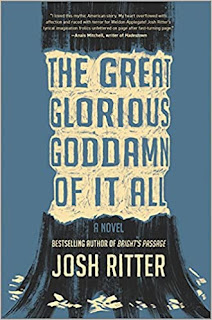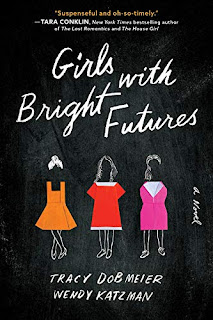This book is on every list this year and is surrounded by hype. The hype is why I was hesitant, but when a co-worker handed this book over before I left on vacation, I thought I better see if it was worth all the talk.
The Prophets is a story rarely (never?) told. Two gay slaves in the plantation south. While much of this story (and the talk surrounding this book) is about them, there's far more here than just that.
The story of Isaiah and Samuel is touching and forbidden, but not at all a secret on their plantation. You find yourself understanding the refuge they found in each other in a place where love - especially Black love - was not something valued by those around them.
The book, too, is about memory. Blood memory. With flashbacks to Africa and villages pillaged, you realize the power of connection and that what is seen as unusual (the love between these two men) goes back generations where constructs of society were not even considered.
You read about their love, but also the torture of slavery. The sexual abuse of slaves, how they were treated as commodities in every way. The love between these two men becomes clear when they won't serve their purpose to reproduce and sire children with other slaves.
One part, in particular, still haunts me now, weeks later. A plantation worker, disgusted by the slaves living as animals - while he's the one who has put them in that position to begin with.
This book is beautifully written, haunting in every way. It picks up momentum from page one, all the way to the end. There's a point about 80 percent in where my jaw dropped and my heart stopped, reading the horror that has become such a forgotten part of America's past in many ways.
This book was on every "best book of the year" prediction list. It will likely end the year on those final lists as well. Powerful, sweeping, haunting, real.










































